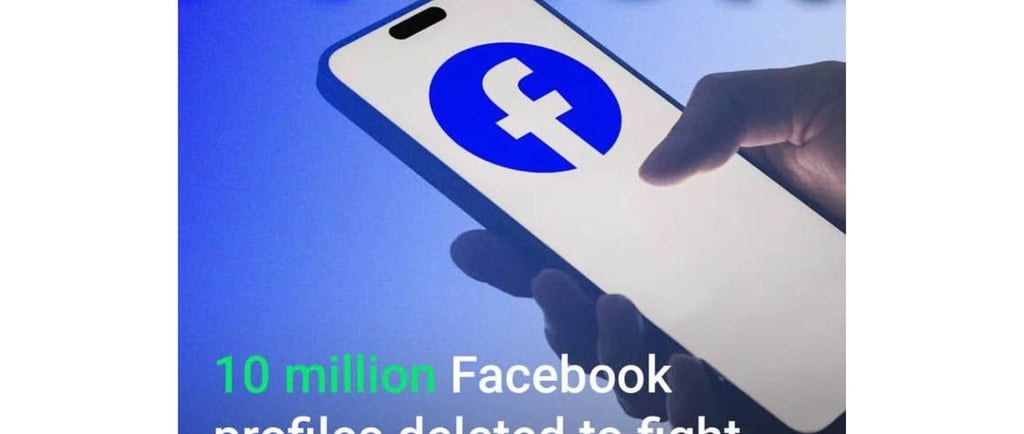🚨 Meta Cleans House: 10 Million Facebook Accounts Removed – Here's Why
In a digital world teeming with likes, shares, and suspicious friend requests, Meta just dropped the hammer — removing over 10 million Facebook accounts in a sweeping crackdown that's making headlines across the internet
NANA KWAME
7/28/20251 min read


This could be the end for users who take other creators' content for monetary gain.
Meta has removed approximately 10 million profiles that impersonate content producers in its fight against spam content.
The company's deletion of spam accounts is part of its larger plan to protect Facebook feeds from “unoriginal” content.
The company shared that in the first half of this year, it removed around 500,000 accounts that showed “spammy” behaviour. Further, it removed 10 million accounts that have been pretending to be big content producers.
While some measures were already taken to stop spam on the Facebook feed, Meta also shared additional steps to combat it further.
The company shared that users often see repeated content on their accounts. This happens because spam accounts share someone else’s content, often without any additional value and without crediting the original author, making it much harder for new and authentic content to pop up.
To improve users’ experience and reduce the amount of repeat content, Meta says accounts that repeatedly share someone else’s posts, videos, or photos will temporarily lose access to Facebook monetization programs and “receive reduced distribution on everything they share.”
Facebook will also reduce the distribution of duplicate videos. The company has also been working on proper content attribution. Facebook is now testing link attribution to duplicate videos that direct viewers to the original.
Due to the increased usage of AI, it has become easier to mass-produce content across different social media platforms, according to CNBC.
Meta isn’t the only one to “clean” its platforms from AI-generated, repetitive, and low-quality content, also known as “AI slop.” For example, YouTube also announced it will take measures against such content by restraining it from generating revenue.
